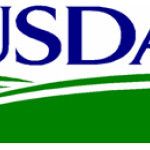- Branche: Government
- Number of terms: 41534
- Number of blossaries: 0
- Company Profile:
Direct donation of food products by the federal government to needy persons, schools, and institutions. Commodities are either entitlement or bonus. Bonus commodities can be received when they are available from surplus stocks purchased by the Commodity Credit Corporation under its price support program or the Agricultural Marketing Service under its surplus removal program (Section 32 of the Agricultural Adjustment Act of 1935).
Industry:Agriculture
This program supplies authority for the Secretary of Agriculture to use agricultural surplus removal (Section 32) and Commodity Credit Corporation (CCC) funds to buy commodities for child and elderly nutrition programs. The Secretary is directed to use Section 32 funds not needed for other purposes and CCC funds (if stocks are not available) to buy commodities for donation to maintain the annually programmed level of commodity assistance for Child and Elderly Nutrition programs. The program is authorized through FY2003 under Section 14 of the National School Lunch Act (NSLA).
Industry:Agriculture
This Act is P.L. 100-237 (January 8, 1988) which established a free-standing law requiring the USDA to improve the distribution and quality of commodities donated to child nutrition programs. Also established a foodbank demonstration project making use of Section 32 agricultural surplus commodities, amended the National School Lunch Act to permit certain pilot projects receiving cash in lieu of commodities or commodity letters of credit to continue receiving them, and amended the Child Nutrition Act of 1966 to make a variety of changes to the WIC program to expand coordination with other programs, conduct studies, and convert certain food funding to use for administrative costs.
Industry:Agriculture
An organization operating under a set of bylaws aimed at promoting trade in one or more commodities by providing services and rules for the conduct of trade.
Industry:Agriculture
A former regulatory agency of USDA established to administer the Commodity Exchange Act prior to 1975; the predecessor of the Commodity Futures Trading Commission.
Industry:Agriculture
The independent federal regulatory agency established by the Commodity Futures Trading Commission Act of 1974 to administer the Commodity Exchange Act. It regulates trading on the futures exchanges in the United States. The CFTC also regulates the activities of numerous commodity exchange members, public brokerage houses, commodity trading advisors, and commodity pool operators.
Industry:Agriculture
This Act is P.L. 93-463 (October 23, 1974) which created the Commodity Futures Trading Commission, to replace the U.S. Department of Agriculture’s Commodity Exchange Authority, as the independent federal agency responsible for regulating the futures trading industry. The Act made extensive changes in the basic authority of Commodity Exchange Act of 1936, which itself had made extensive changes in the original Grain Futures Act of 1923.
Industry:Agriculture
The U.S. Agency for International Development uses a small portion of U.S. foreign aid funds to make grants and loans to countries judged important to U.S. foreign policy objectives. These CIPs, by making dollars available, help these countries finance purchases of U.S. commodities (including agricultural commodities) or other inputs needed to meet their development objectives and also provide balance-of-payments support to countries with very limited foreign exchange.
Industry:Agriculture
Food instruments issued in lieu of commodities to certain designated schools participating in the National School Lunch Program. These letters of credit specify the types of foods that schools must buy, which are the same types of foods being donated to other schools by USDA under the commodity distribution program.
Industry:Agriculture
Price per unit (pound, bushel, bale, or hundredweight) at which the CCC provides nonrecourse loans to farmers to enable them to hold program crops for later sale. Commodity loans under the FAIR Act of 1996 are recourse for sugar in years that imports are below 1.5 million short tons, and will become recourse for dairy in 2000.
Industry:Agriculture
